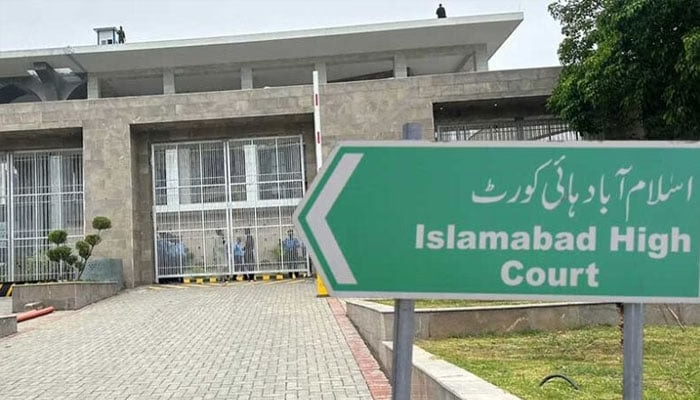In a significant move aimed at curbing drug smuggling into educational institutions, the Islamabad High Court (IHC) has imposed a ban on the direct delivery of goods to students in schools and colleges. The decision comes amid growing concerns about the increasing penetration of drugs in academic environments through delivery services.
The ruling was issued by Justice Inam Amin Minhas during the hearing of a petition that called for the inclusion of drug awareness and prevention in the academic curriculum of Islamabad’s educational institutions. The petition highlights the alarming rise in drug use among students and urges educational reform to tackle this issue head-on.
How Are Drugs Reaching Students? – Judge Questions Delivery System
While hearing the case, Justice Inam Amin Minhas posed a critical question: Do you know how drugs enter schools and colleges? He went on to state that illegal substances are often smuggled into educational institutions under the guise of food and parcel deliveries. Children order pizza and other items, and along with that, drugs also make their way into these campuses, the judge remarked.
The court observed that the delivery system is being misused, turning schools and colleges into soft targets for drug traffickers. The judge further directed authorities to thoroughly inspect what is being delivered to various institutions and identify schools and colleges that are frequently using direct delivery services.
Ban Imposed on Direct Deliveries to Students
Justice Minhas ordered an immediate ban on all direct deliveries—whether food, parcels, or other goods—to students at educational institutions. He emphasized that the practice should be halted without exception and any violations should lead to swift action against the respective school or college.
Check which schools and colleges are allowing frequent deliveries. All such activities must be stopped. Any institution that continues to permit direct deliveries should face action,the judge asserted.
The court instructed law enforcement and administrative bodies to monitor the situation closely and provide an implementation report at the next hearing.
Cabinet Secretary Asked to Submit Report on Anti-Narcotics Measures
In a related move, the Islamabad High Court has also called upon the Cabinet Secretary to submit a report regarding the establishment of a National Anti-Narcotics Council. This council would be responsible for designing and coordinating a unified national response to the drug menace, particularly among youth and students.
The creation of such a body would mark a significant policy shift in addressing the growing threat of drug addiction in educational institutions and the wider community.
Schools and Colleges in the Spotlight
The court’s directive puts schools and colleges across Islamabad under scrutiny. Educational institutions will now need to rethink their policies on accepting deliveries on behalf of students. While such services were previously considered harmless and convenient, they are now being viewed as potential security risks.
School administrations are being urged to enforce the ban strictly and cooperate with authorities during inspections. Failure to do so could result in legal action and possible sanctions.
Growing Drug Concerns Among Youth
This high-profile court case brings renewed attention to the growing concern of drug use among Pakistani youth. Experts have long warned that drug traffickers often target students, exploiting loopholes in school security protocols. Delivery services—originally meant for convenience—have increasingly become a channel for smuggling narcotics under innocuous covers like food packaging and sealed parcels.
Calls have been growing for tighter monitoring, awareness campaigns, and curriculum reform to tackle drug abuse in academic institutions. The court’s emphasis on incorporating drug education into the school curriculum marks a proactive step in this direction.
Next Hearing Scheduled for May 28
The Islamabad High Court has adjourned the hearing of the case until May 28, by which time relevant departments are expected to submit comprehensive reports. These reports will include details on the implementation of the direct delivery ban, surveillance of delivery activities at schools, and the progress on forming the proposed National Anti-Narcotics Council.
A Wake-Up Call for Parents and Institutions
The court’s decision serves as a strong warning to both parents and educational institutions. Parents are urged to communicate with schools about their children’s activities and to discourage unnecessary deliveries during school hours. At the same time, institutions must take responsibility for the safety and well-being of their students by eliminating practices that can potentially compromise their security.
In an era where convenience can be misused for criminal activity, the Islamabad High Court’s ruling is a reminder that student safety must always come first.



